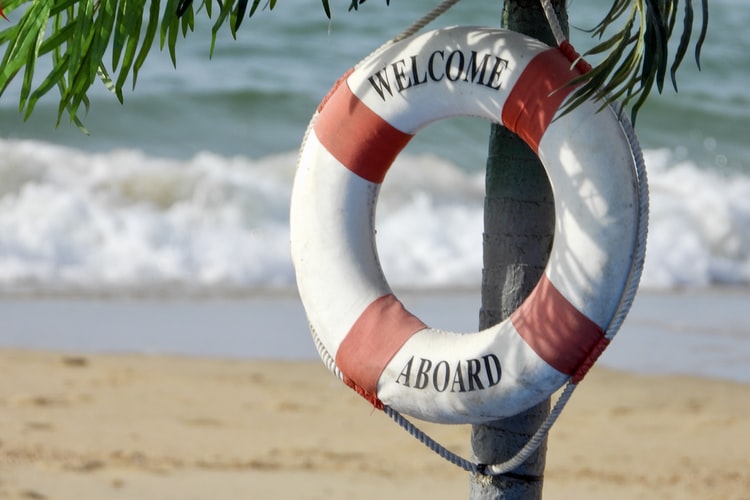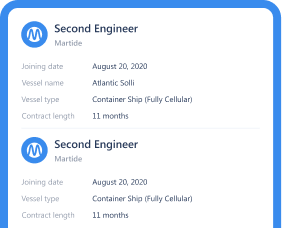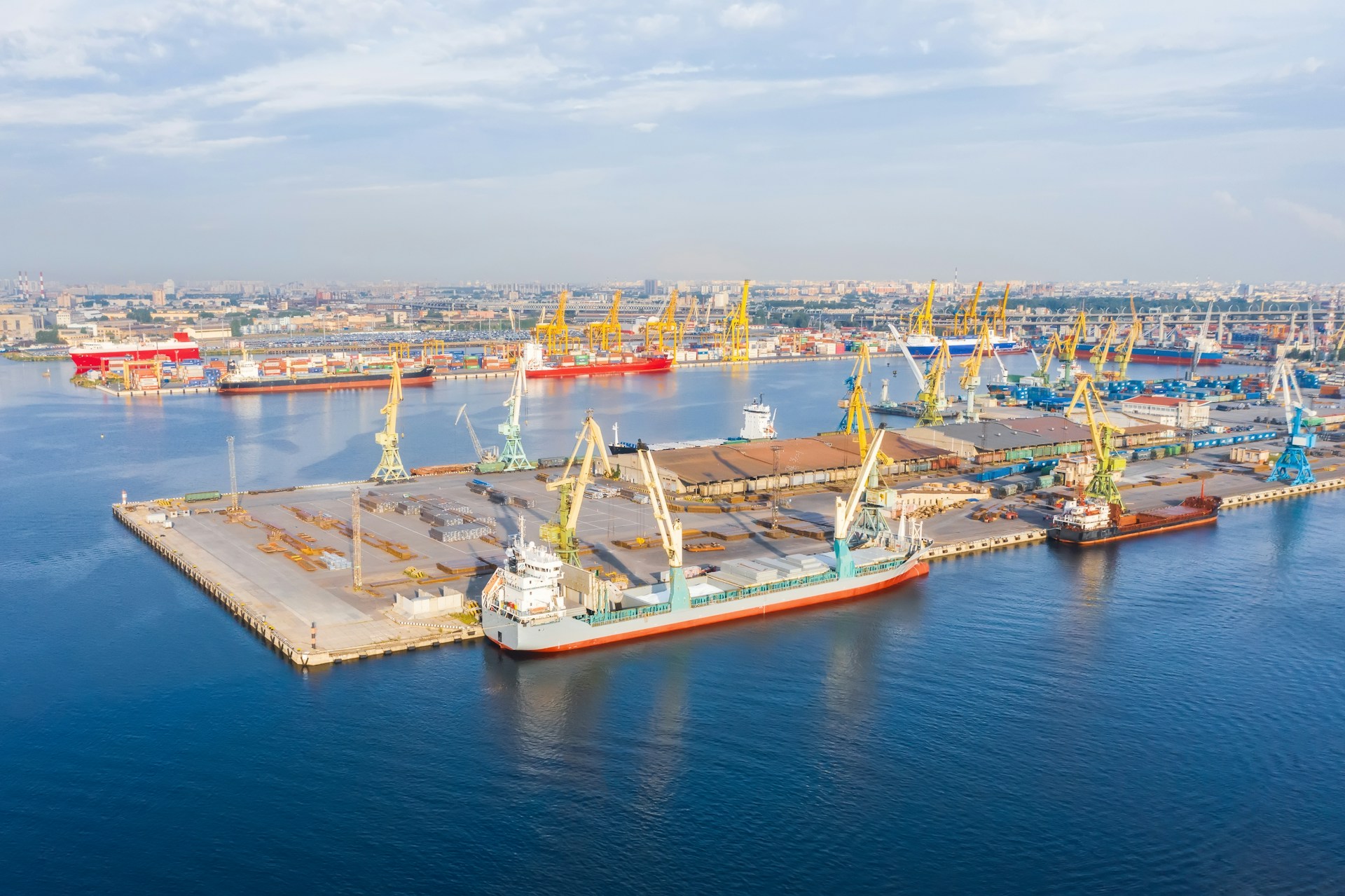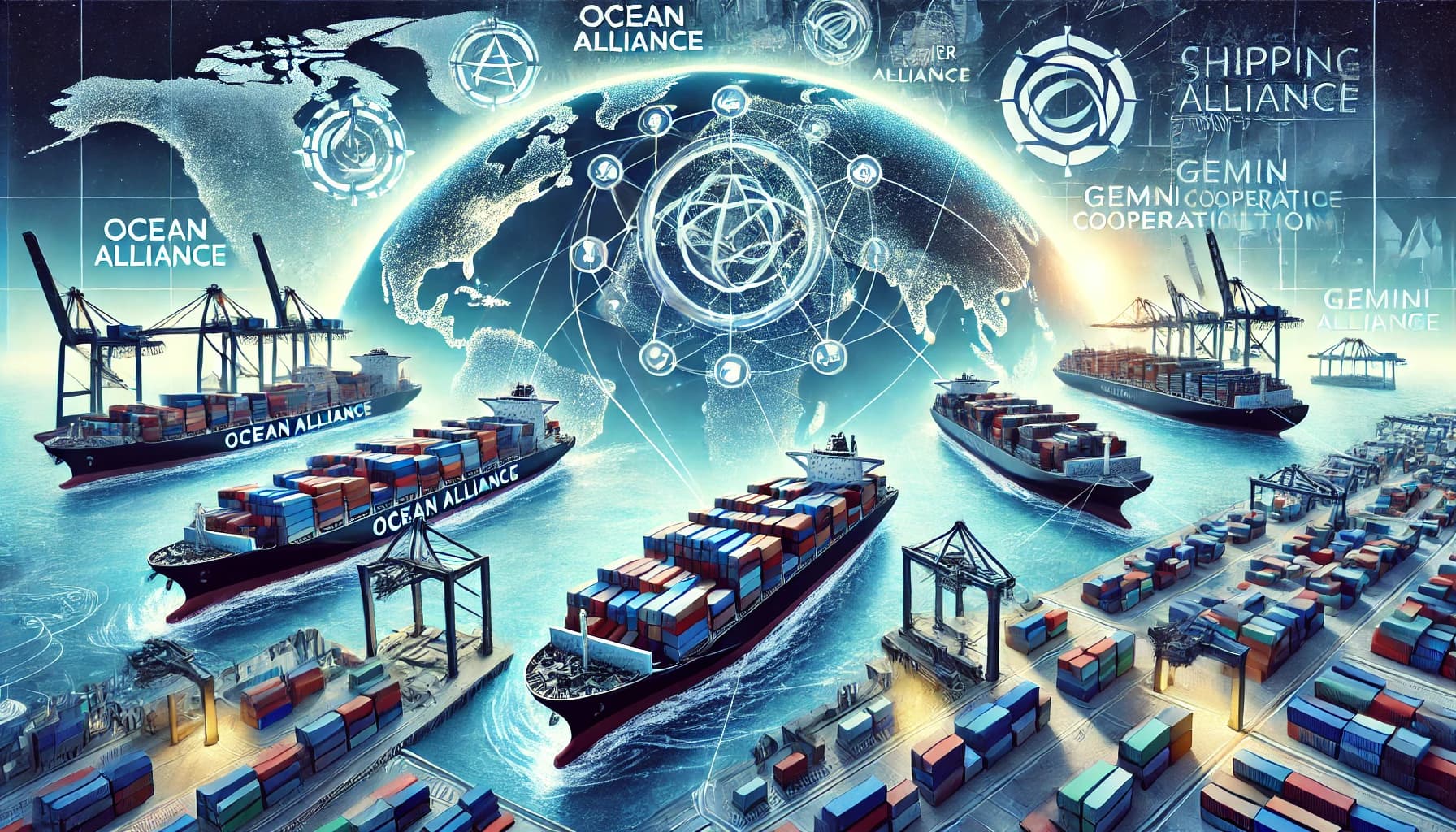2025 Recruitment Trends: What Maritime Recruiters Must Know

The recruitment landscape is evolving rapidly, with new trends shaping the way companies attract, hire, and retain talent. As we head further into 2025, recruiters across various industries, including maritime and logistics, must stay ahead of the curve to remain competitive and efficient.
The maritime industry, in particular, faces unique hiring challenges, such as sourcing highly specialized talent, addressing workforce shortages, and adapting to technological advancements.
How will recruitment change for the shipping industry?
With that in mind, in this blog post we’re going to be taking a look at some key recruitment trends that will define the coming year and how recruiters, including employers and manning agencies, in the maritime sector can leverage them.
1. Digital transformation in recruitment
Technology continues to revolutionize recruitment processes. In 2025, artificial intelligence (AI), automation, and data analytics will play an even bigger role in streamlining hiring. From AI-driven applicant tracking systems (ATS) to chatbots that assist with initial candidate screening, technology will help recruiters focus on higher-value tasks.
How this affects maritime recruitment:
- AI-powered ATS can efficiently screen applications for specialized ranks such as Electro-Technical Officers or Chief Engineers.
- Digital platforms - such as Martide’s maritime recruitment software - will provide seamless candidate engagement, reducing hiring timelines for urgent roles and ranks.
- Automation in onboarding will ensure smoother transitions for seafarers before their deployment.

2. Employer branding and candidate experience
Companies that prioritize employer branding will have a competitive edge. Candidates are looking for more than just salaries—they seek workplace culture, career growth opportunities, and strong leadership.
How this affects maritime recruitment:
- Shipping companies and offshore employers need to showcase company culture, safety standards, and employee benefits to attract top talent.
- A transparent and engaging hiring process can improve retention rates for skilled seafarers.
- Online reviews and testimonials from current employees can enhance a company’s reputation in the job market.
Read more: Tips for Better Candidate Engagement in Maritime Recruitment
3. Diversity, equity, and inclusion (DEI) initiatives
DEI is no longer a buzzword - it's a fundamental requirement in today’s workforce. Companies are focusing on building diverse teams that bring different perspectives and skills to the table, or indeed, vessel.
How this affects maritime recruitment:
- Maritime recruiters need to develop strategies to attract more women and underrepresented groups into seafaring roles.
- Offering inclusive workplace policies, such as equal pay and anti-discrimination measures, can enhance recruitment efforts.
- Global recruitment efforts must ensure fair hiring practices across different regions and cultural backgrounds.
4. Skills-based hiring over traditional credentials
The emphasis on skills over degrees and certifications is increasing. Employers are shifting towards hiring based on practical experience, competencies, and adaptability rather than traditional qualifications alone.
How this affects maritime recruitment:
- Practical assessments and skill-based evaluations will become standard in seafarer hiring.
- Companies may look for transferable skills from other industries when filling non-technical maritime roles.
- Upskilling and reskilling initiatives will play a crucial role in workforce sustainability.

5. Flexible and hybrid work arrangements
While remote work might be the very definition of a seafarer job, in the traditional office-based sense, flexibility in scheduling and shore-based jobs within the maritime industry is growing in importance.
How this affects maritime recruitment:
- Companies must offer more flexible rotations and leave policies to improve job satisfaction.
- Employers should invest in digital communication and software tools for seamless remote operations in shore-based maritime jobs - such as Martide’s maritime crew management software solution.
- Hybrid work opportunities will be a strong selling point for roles in logistics, administration, and maritime technology sectors.
6. Data-driven decision-making
Recruitment strategies will increasingly rely on data to track hiring metrics, improve processes, and predict talent shortages.
How this affects maritime recruitment:
- Predictive analytics will help identify workforce gaps in the shipping and offshore sectors.
- Data insights can optimize crew deployment schedules to minimize downtime.
- Recruitment dashboards will enable better talent pipeline management.
Read more: How to Create a Talent Pipeline in Maritime Recruitment

7. Sustainability and corporate social responsibility (CSR)
Candidates are prioritizing sustainability and CSR initiatives when choosing employers. Organizations that actively work towards environmental and social responsibility will attract top talent.
How this affects maritime recruitment:
- Shipping companies that promote eco-friendly practices, such as reducing carbon emissions, will appeal to younger job seekers.
- Ethical labor practices and worker welfare programs will be key differentiators in employer branding.
- Sustainable recruitment practices, such as digital hiring and reduced paperwork, will become standard.
8. Proactive talent pipelines and succession planning
With a growing demand for specialized talent, companies will focus on building proactive talent pipelines rather than reactive hiring.
How this affects maritime recruitment:
- Shipping firms and offshore companies need to establish long-term relationships with potential candidates.
- Succession planning will be critical to ensure leadership continuity in key roles such as Masters and Chief Officers.
- Internship and apprenticeship programs can help bridge the skills gap and attract young professionals to the industry.
Read more: How to Create Deeper Talent Pools for Faster Maritime Recruitment

9. Personalization in recruitment and employee engagement
Recruitment strategies will become more personalized, ensuring candidates feel valued from the first interaction.
How this affects maritime recruitment:
- Tailored job offers and career progression plans can improve retention in the industry, both for shore-based workers and seafarers.
- Personalized outreach via social media and targeted job postings will enhance candidate engagement.
- Recruiters will leverage video interviews and interactive onboarding to create a more engaging hiring experience.
10. The rise of recruitment marketing
Recruitment is no longer just about posting job listings - it involves strategic marketing to attract the right candidates.
How this affects maritime recruitment:
- Social media campaigns, virtual career fairs, and targeted ads will help attract top talent and dedicated seafarers alike. (Did you know that Martide posts the maritime job vacancies on our website on our Facebook, Twitter/X and LinkedIn accounts?)
- Video content showcasing life at sea and career growth opportunities will engage potential candidates.
- AI-powered job matching tools will enhance recruitment efficiency.
Is your maritime recruitment team on trend for 2025?
2025 is now well under way and maritime recruiters and manning agents must embrace new trends and technologies to stay ahead in a competitive job market.

Read more: Why Manning Agents Need to Learn to Love Tech
The shipping industry, with its unique hiring challenges, can benefit from digital transformation, data-driven insights, and proactive talent management. By focusing on employer branding, diversity, and sustainability, maritime recruiters can not only attract but also retain skilled professionals.
Staying agile and adapting to these evolving trends will be key to successful recruitment strategies in the coming year. By integrating these best practices, maritime recruiters can future-proof their hiring processes and continue to build a resilient workforce.
How Martide makes maritime recruitment easier
If this year is the year you’ve decided to upgrade your maritime recruitment processes, it’s time to talk to Martide. As the above trends in recruitment and the need for adaptability have pointed out, if you’re not moving with the times, you’re going to be missing out on great candidates - both in your shore-based maritime jobs and on your vessels.
We make life much easier for your recruitment team with our maritime recruitment software solution which helps you take control of your hiring process from A to Z.
That means right from the very start of finding crew for your vessels, through to interviewing them, checking their documents, preparing contracts and arranging travel. In fact, our crewing system even helps you streamline your crew change processes too.
Want to find out more about how our crewing software can make maritime recruitment easier, less stressful and more up-to-date? Request your free demo now and let’s face the future together!

Eve Church
Eve is Martide's content writer, publishing regular posts on everything from our maritime recruitment and crew planning software to life at sea. Eve has been writing professionally for more than two decades, crafting everything from SEO-focused blog posts and website landing pages to magazine articles and corporate whitepapers.
UK



